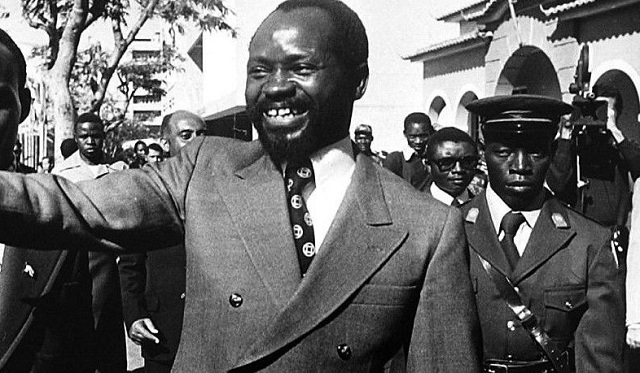SA, Mozambique mark Samora Machel death

Johannesburg — South Africa is hosting a commemoration 30 years after the death of Mozambican President Samora Machel, who was killed in a mysterious plane crash just inside the border of South Africa when it was under white minority rule.
Graca Machel, the widow of Machel who later married Nelson Mandela, was among those attending the ceremony yesterday in Mbuzini, a South African village close to where Machel and more than 30 others died on October 19, 1986, when they were returning to Mozambique from Zambia.
There were widespread suspicions that the apartheid government was responsible for the death of Machel, an opponent of South Africa’s white rulers.
The South African government at the time blamed the disaster on the plane’s Soviet crew, saying it ignored safety procedures.
Atop a hill on the border that joins Mozambique, Swaziland and South Africa 35 steel tubes mark the site where Samora Machel’s airplane crashed. The hollow pipes — one for each person that died — seem to moan when the wind passes, as though in mourning.
A statue of the late statesman will be unveiled in his country’s capital Maputo tomorrow, the anniversary of his death.
The commemorations got underway yesterday with a memorial service at the crash site near the town Mbuzini in northeast South Africa, attended by Mozambican President Armando Guebuza and his South African counterpart Jacob Zuma.
Mozambican students still sell DVDs of Machel’s impassioned speeches on Maputo’s streets, and the government declared 2011 “Samora Machel Year” as a testimony to his enduring popularity.
“The main thing about Samora is he had an extraordinary powerful common touch,” says academic Colin Darch, who worked at the country’s Eduardo Mondlane University in the 1980s.
“There’s something in his vision of what Mozambique could be like that speaks to young people today who weren’t born then.”
Born in Chilembene village in Southern Mozambique, Samora Moises Machel worked as a nurse before becoming a revolutionary. He fought for liberation from the 400-year-long Portuguese colonial rule and became the first president at independence in 1975.
“He was very clear about creating a culture of discipline and hard work,” says his widow Graca, who served under him as education minister and was later married to the late former South African President Nelson Mandela.
Machel included women and people of all races in the nation-building project of the ruling party Frelimo, in stark contrast with Mozambique’s apartheid neighbour.
“It was very inspiring and encouraging for me as a South African to see this non-racial spirit working,” recalls Albie Sachs, a former South African constitutional court judge who lived in Mozambique at the time and nearly died in a bomb attack himself for his activism against the white-minority government.
But socialist policies and a crippling civil war from 1977 funded secretly by South Africa forced Mozambique to its knees.
In a 1984 agreement Mozambique agreed to send away guerrillas of the then-liberation movement African National Congress. In return South Africa would stop bankrolling the rebel movement Renamo.
Neither kept their side of the bargain.
On the night of October 19 1986 Machel was flying home from a conference in Zambia when his Tupolev airplane crashed into the Lebombo mountains just a few kilometres from the border.
A South African-led enquiry blamed the Russian crew for the accident which killed 35 of the 44 aboard, including government ministers and academics.
But Mozambicans believed otherwise.
“There was an utter conviction that the plane had been brought down” by the apartheid state, according to Sachs.
The news of the crash shattered Mozambicans just as they were finding their way in post-independence Mozambique. “People at work were crying, walking slowly,” he recalls.
And 25 years later Graca Machel feels the same pain.
“You reopen the wounds as you go through the details how the day started, how you were informed [of the crash], because there is no closure.” — AFP










Comments